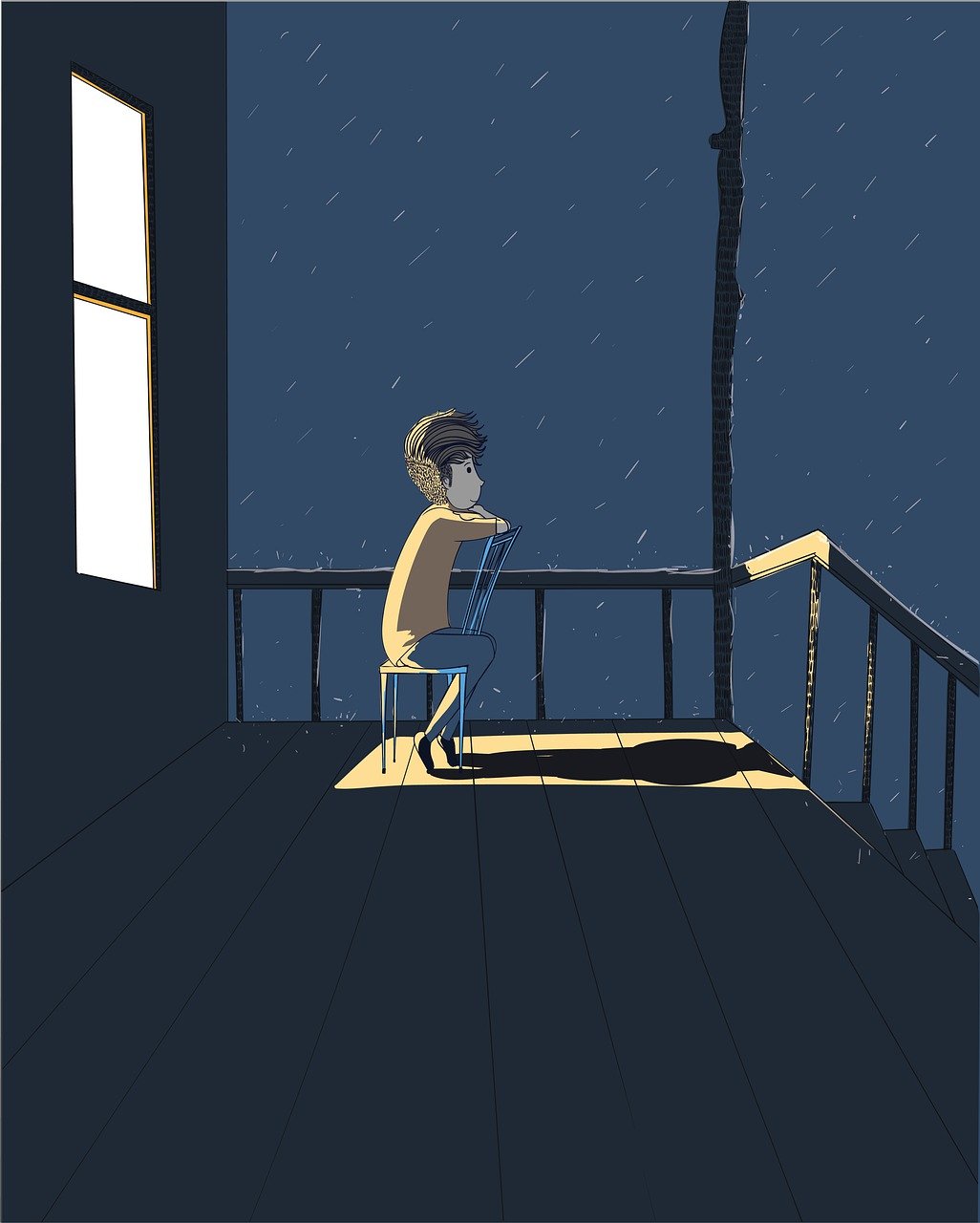Have you ever spent time ruminating or obsessing over why you’re having such a difficult time making and keeping friends?
Yeah, me too…
If you’re like me, you’ve already spent (maybe a lot of) time googling answers to that question, cause google kinda knows everything – so why not this?!
Feelings of confusion, bewilderment, hurt, sadness, and rejection often come up when I have yet again experienced another adult friendship fail. Oh, and anger… she’s there too.
Why does this keep happening? If there’s a pattern, it must be me, right? But is it…?
As someone who prides herself on having pretty decent social skills (hell, I’m a communication coach after all!) and has still struggled my whole life to make and maintain peer friendships, I am here to tell you – It’s not just you and what you’re feeling is completely normal.

So Why Then?
There are lots of reasonable explanations for why making meaningful, lasting friendships as an adult feels impossible. Like…
When?
Seriously, between your 50+ hour work-weeks, spending time with your partner, tending to your children (animal kids count too!), helping out your family, showering, using the toilet, checking email(s), taking the recycling bin to the curb AND back (ugh, so annoying), paying your over-due balances, picking up the next gift for whatever holiday/celebration/congratulation situation is coming up – honestly, who has the time for friends?!?!
Well, I do! In fact, a lot of us do. According to a 2023 survey conducted by the U.S. Bureau Of Labor Statistics, the average person engages in 5-6 hours of leisure activities per day. Sure, much of that time is spent decompressing, zoning-out, and generally avoiding the challenges of life, but this is also when you can check in with a friend, meet up for a walk, maybe grab a bite to eat.
Where?
Look, when we were kids there was a social-smorgasboard of opportunities to meet peers and make connections. Day care, the play ground, school, dances, faith communities, the neighborhood, all kinds of extra-circulars (hanging out in an empty parking lot, included). As adults, the opportunities begin to dwindle. According to industrial-organizational psychologist and data scientist Andrew Naber, adults will spend an average of 90,000 hours working over their lifetime. So, a lot of people work…a lot. As a result, our place of work becomes our primary social context.
But what if you’re like me and work mostly from home? The social opportunities dip to a problematic level. One that negatively impacts our mental health and emotional health.
In such cases, extra effort is crucial. Why? Because according to the Center for Disease Control and Prevention, “social connectedness influences our minds, bodies, and behaviors – all of which influence our health and life expectancy.”
How?
This might sound silly or completely relatable, but one major obstacle to making friends is the struggle to ‘put yourself out their.’ Adults often report it feels embarrassing to ask someone if they want to be friends with them (just another reason why kids have it so good – they’re often much less inhibited). Adults don’t want to take such risks. Adults have been burned, betrayed, lied to, cheated on, abandoned, ghosted, gaslit and forgotten about – and we remember that shit.
Yup, I’m here for those feels – and to tell you to try anyway.
Let's Find Some Damn Friends!

Ideas to consider when you're feeling ready to build some adult friendships:
- Socials – You’re probably already on social media, so scroll through your lists of ‘friends’ and ‘followers’ and see if anyone new seems interesting! Or post an invitation to start a book club, movie or game night!
- Connect with old friends – I am in the midst of this one right now and, can I just say, I am SO glad I took this step! Those friends from way back that you’ve lost touch with (even if you had a spat) are great options for RE-connection. We all get older and (hopefully) wiser. Plus, if it doesn’t work out, you’ve already ‘unfriended’ them once!
- Meetups – That’s right, let’s get out of the house and meet strangers (safely). Find people in your area who like the things you like – It’s kinda like match-making for friendships!
- Volunteer – What a great way to meet like-minded people and spread some good energy around this world?! I enjoy walking dogs at a local rescue, but find what really speaks to you at volunteermatch.org.
- Local Events – Sites such as Eventbrite and the events section of facebook are great resources for staying up to date with fun and interesting (and often free!) things going on near you. Heading out, enjoying the event and making a point to chat people up could open up all kinds of opportunities to build a connection.
- Sign up for a class – Yoga, Zumba, pottery, painting, a gym membership, jewelry making – hell, take a CPR class! Anything you find interesting, challenging, and other people will be there (yes, that’s a must).
- Community connections – If you reside in a neighborhood or live in a building complex that places you in close proximity to others, consider hosting a pot luck or an open house, a block party (or a floor party – as in, “hey neighbors, we all live on the second floor, let’s celebrate!”). Getting to know your neighbors better, even if they’re not BFF material, can still help you feel more connected and less alone.
Knowing When To Let Go

Sometimes relationships just don’t work out, and it sucks…
So how do you know when to let a friendship go and move on? Well, my friends, I have had a lot of experience in this area, personally. That, in addition to my clinical training and professional experiences working with countless individuals and couples trying to make relationships work, here are a few questions I’ve learned to ask:
- How does being in this relationship currently make me feel? Perhaps you dwell a lot on the good ‘ol days of your friendships and that reminiscing keeps you locked into wishing and hoping things can return to that status (and maybe it can). But no matter how long ago that was, if you’re feeling mistreated, ignored, unheard, or taken advantage of, base your decision making on the NOW.
- What am I willing to feel to try and save it? Maybe the relationship can be salvaged, but neither of you are taking the steps to try and fix it? This is the moment you have to ask yourself – what are you willing to feel, in order to fight for the relationship? If uncomfortable, vulnerable, anxious, and possible rejection are not on your list, you might not be ready to fight that fight. Saving a damaged relationship requires at least one of you to take the first step (and there’s never a guarantee the other will follow suite and that will hurt).
- Am I willing to accept not knowing why? Many of my failed friendships are a mystery to me and, that’s the worst part. Sure, I miss those connections but, for most of my life, the not knowing was kind-of torturous. I’d ruminate about what happened, what I did; what was it about me that was so easy to drop? I’ve come to learn that, once I’ve reached that point, the relationship is dead in the water. That I need to accept that I may never know why and free myself from the burdens of the unknown.
So my best advice is to embrace, nurture, and appreciate the connections you currently have (be it person, pet, or plant). Soak in that love and, when you feel ready and willing, take some risks. Put yourself out there. Try something new. But most importantly – live your life in a meaningful way and don’t forget to keep trying.
If you struggle with making connections, asking for what you want, or saying no when you need to – communication coaching might be helpful for you! I offer no-pressure FREE Coaching Consultations if you can relate to this struggle or just have an interest in learning more about communication coaching and how I can assist you in learning to navigate the world in a more authentic and meaningful way. I am incredibly passionate about teaching others how to hone and embrace the skills to communicate effectively and would love to meet you!
References
American Time Use Survey Summary – 2021 A01 Results. (n.d.). https://www.bls.gov/news.release/atus.nr0.htm
Bellucci, G. (2020). Positive attitudes and negative expectations in lonely individuals. Scientific Reports, 10(1). https://doi.org/10.1038/s41598-020-75712-3
How Does Social Connectedness Affect Health? (2023, May 8). Centers for Disease Control and Prevention. https://www.cdc.gov/emotional-wellbeing/social-connectedness/affect-health.htm
Mushtaq, R., Shoib, S., Shah, T., & Mushtaq, S. (2014). Relationship Between Loneliness, Psychiatric Disorders and Physical Health ? A Review on the Psychological Aspects of Loneliness. Journal of Clinical & Diagnostic Research. https://doi.org/10.7860/jcdr/2014/10077.4828
One third of your life is spent at work. (n.d.). Gettysburg College. https://www.gettysburg.edu/news/stories?id=79db7b34-630c-4f49-ad32-4ab9ea48e72b&pageTitle=1%2F3+of+your+life+is+spent+at+work
